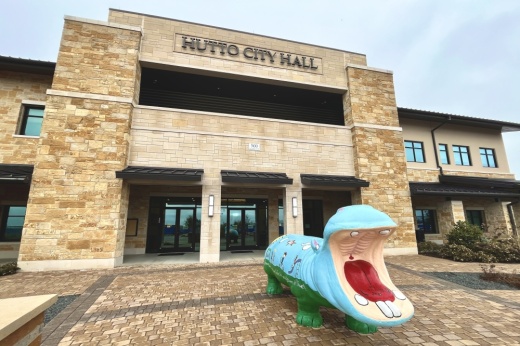Hutto City Council approved the final rate structure April 4 for water and wastewater rate increases coming to customer bills in June. Residential water customers will see a $2 increase to their base water rate, while wastewater customers will see an increase of $12 to the sewer base rate, according to city documents.
Larger meters will see a $5 increase in water rates and $19.50 for wastewater rates.
Two-minute impact
Rates for previously approved future water and wastewater projects have been determined based on the city's current debt issuance per project.
“This is the most fair distribution of the burden. Of the options we have, that's the best one in my opinion,” Place 2 City Council member Dan Thornton said, while council discussed the three rate structure options presented by city staff.
City Manager James Earp added that a rate study will be conducted during the upcoming budgeting process in September to confirm the rate increase is sufficient.
Additional rate studies will be conducted once the wastewater projects come online, the biggest of which—the wastewater treatment plant expansion—is estimated to be completed within the next three years.
The $90 million project will expand the city’s processing capacity to 6 million gallons per day.
“You have to plan for the future and look at what can save the taxpayer. ... What's the best cost to them,” Place 3 City Council member Randal Clark said.
The framework
Council approved a motion March 21 to issue a total of $349 million in debt toward water and wastewater projects.
These projects are intended to address the pressing need for increased capacity due to rapid growth seen in recent years, according to city staff.
The approved funding will come from a city-issued certificate of obligation, or CO, bond. These CO bonds are typically backed by taxes or impact fee revenues, and they do not require voter approval unless 5% of qualified voters within the city’s jurisdiction file a petition for an election on the spending in question.
COs provide local governments with flexibility when projects need to be financed quickly, according to the Texas Comptroller.
Looking ahead
Mayor Mike Snyder voiced concerns over relying too heavily on future development impact fees to repay the city’s CO bond debt.
“We're setting ourselves up, in my mind, to fail because we're pushing growth,” Snyder said. “We have this message that we're pushing more cost to commercial to save the residential people. At the end of the day, who do you think pays those costs? The commercial person doesn't eat that; they pass that on [to the consumer].”
Thornton added there are a number of developers building within Hutto’s extraterritorial jurisdiction that face lower development standards. The alternative is to bring these developments into city limits, which would require the city to provide utility services, he said.
"We're currently looking at four developments that are not in our plan that want to build package plants, and we want to tell all of them, 'You should be connecting us,'" Thornton said.
Place 6 City Council member Amberley Kolar remains hopeful that future rate studies will paint a “more accurate picture,” allowing the city to fine-tune the base rates charged to water and wastewater customers.
“This is definitely not a uniquely Hutto challenge. A lot of cities are going through [water challenges]; it's not just our community. So thank you to the residents and users for having some grace through all this [discussion]; we're going to have water and wastewater for you,” Kolar said.





